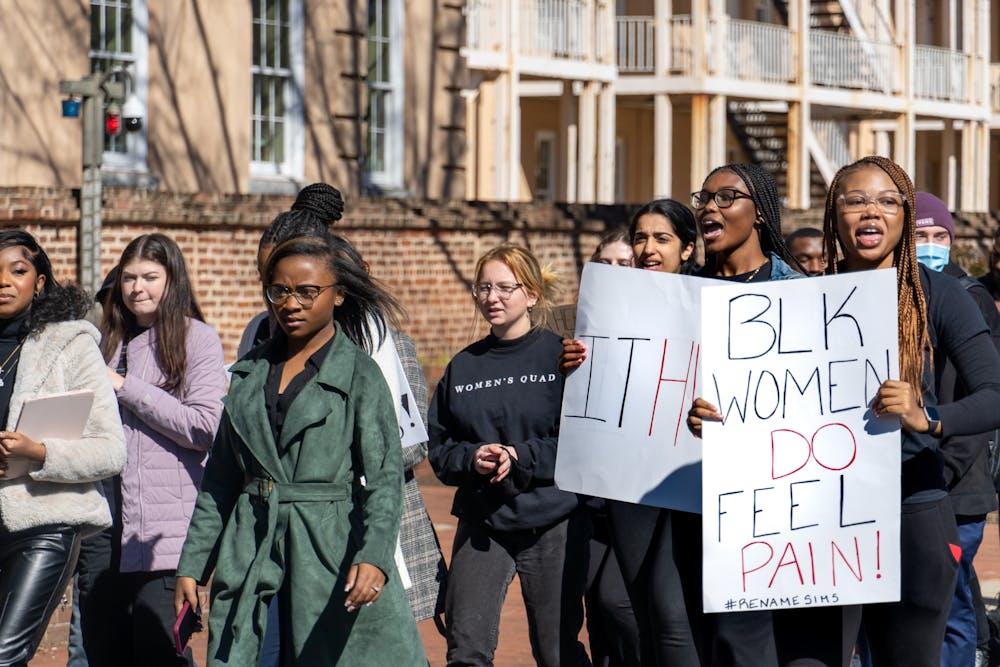The S.C. Heritage Act should be repealed because it allows for racist and misogynistic figures to be the namesake of buildings on our campus.
On Saturday, Feb. 5, the USC NAACP chapter led University of South Carolina students in a march from Greene Street to the Statehouse. The goal of the march was to inspire the renaming of various facilities on campus that are named after historical figures who held both racist and misogynistic views.
However, this desire for change is being impeded by the S.C. Heritage Act.
South Carolina’s Heritage Act requires the approval of a majority of the General Assembly for renaming or altering certain roads, buildings or monuments on public property.
Many of those who gathered in protest of the law said they felt that it impedes progress in relation to the diversity and character of the institution.
“I think it reflects poorly on the university. It’s embarrassing, honestly, to be the flagship school of the state and to not be the leader of change,” said Caley Bright, a second-year criminal justice student and president of USC’s NAACP chapter.
One of the protest's focuses was the "S-Wing" of the Women's Quad, which is named after James Marion Sims.
Sims, an alumnus of the university, became known as the “father of modern gynecology” after perfecting a cure for vesicovaginal fistula. However, to do this, he operated on enslaved women without using anesthesia, according to the Presidential Commission on University History.
When you remember how he perfected his craft, it is understandable that female students would feel both unwelcome and uncomfortable living in a building named after Sims.
However, Sims is not the only namesake on campus that needs to be removed. The Strom Thurmond Wellness and Fitness Center also needs to be renamed.
"Strom Thurmond, what he did was not right," Brandon Vereen, a second-year sports and entertainment management student, said.
Thurmond's actions are indeed undeserving of being the namesake of a building on one of the most prestigious universities in the country. Thurmond was a segregationist who campaigned as the presidential candidate of the Dixiecrats, a political party that opposed granting civil rights to Black citizens.
Unfortunately, university officials have done nothing in regard to this issue, even though students have been raising the concern for years.
Despite promising “decisive action” in a letter published on July 14, 2021, interim university President Harris Pastides did not request the board of trustees to rename buildings, and it was later revealed in emails obtained through a public records request by The Chronicle of Higher Education that the letter had been meticulously constructed through at least 14 drafts before it was released to the public.
If USC wants to be accepting of people of all races and ethnicities, it is hypocritical if it does nothing about its buildings bearing the names of people whose practices were openly discriminatory.
Changing building names would be more than just a public relations win. Although a building's name may not seem like a vital point of social justice to some, its meaning to others is monumental.
“It would change a lot. It would show that our voices are actually being heard,” William Jarvis, president of USC Aiken’s NAACP chapter, said.
It is abundantly clear that Sims and Thurmond are not people who deserve to have facilities named after them.
However, the General Assembly and university administration's refusal to have people such as these removed from their pedestal raises a very pertinent question: When issues of social justice occur in the future, should USC students expect the same stubbornness and inaction?
If so, then the failure of leadership will have a detrimental effect on both the legacy and perception of the USC for the foreseeable future.

